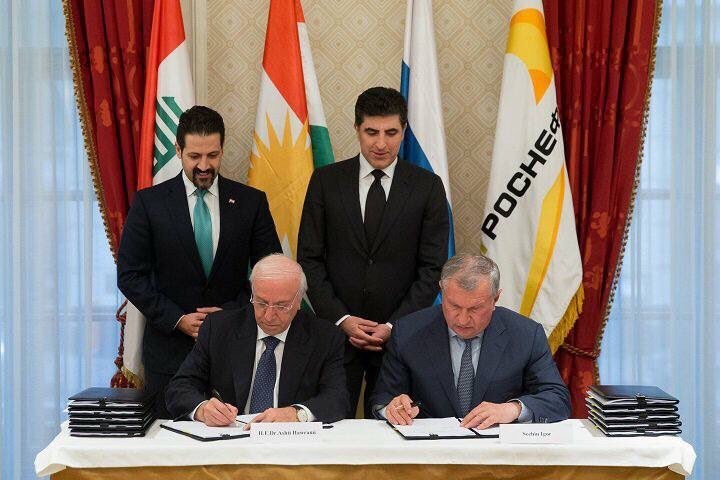By Ahmed Tabaqchali. Originally published by Iraq in Context; re-published by Iraq Business News with permission. Any opinions expressed are those of the author, and do not necessarily reflect the views of Iraq Business News.
Between February 2017 and mid-October, Rosneft signed a number of deals with the Kurdish Regional Government (KRG) that established for it, and by extension for Russia, a major position as both an investor and stakeholder in the Kurdish Region of Iraq (KRI)’s hydrocarbon resources and infrastructure.
The move was interpreted, especially by the KRG, as implicit support for the KRG in its bid for independence, especially in light of the latest deal signed following the reassertion of Iraq’s federal control over Kirkuk and other disputed territories. While there is an element of truth to this thinking, the deals are part of a wider geopolitical positioning for Russia as a major gas supplier to Europe and as an emerging power in the Middle East.
The deals provide Rosneft, and by extension Russia, effective control of the KRG’s Oil & Gas infrastructure, and a controlling stake in the region’s finances in more ways than one.
Within the oil space it has established this in three ways. The first was by providing USD 1.5bn in financing via forward oil sales payable over 3-5 years. This would be payable in kind from the KRG’s exports, until recently at about 550,000-600,000 barrels per day (bbl/d). However, the loss of the Kirkuk fields takes away about 430,000 bbl/d of production or eventually about half of the KRG’s exports.
This leaves the KRG with a tiny revenue stream after payments to International Oil Companies (IOC)’s, from which to make payments on forward oil sales of up USD 3.5 bn including Rosneft’s USD 1.5bn. A complicating factor is the repayment of other KRG debt, estimated at over USD 21bn by end of 2017, which will have to be factored into debt payment sustainability.

